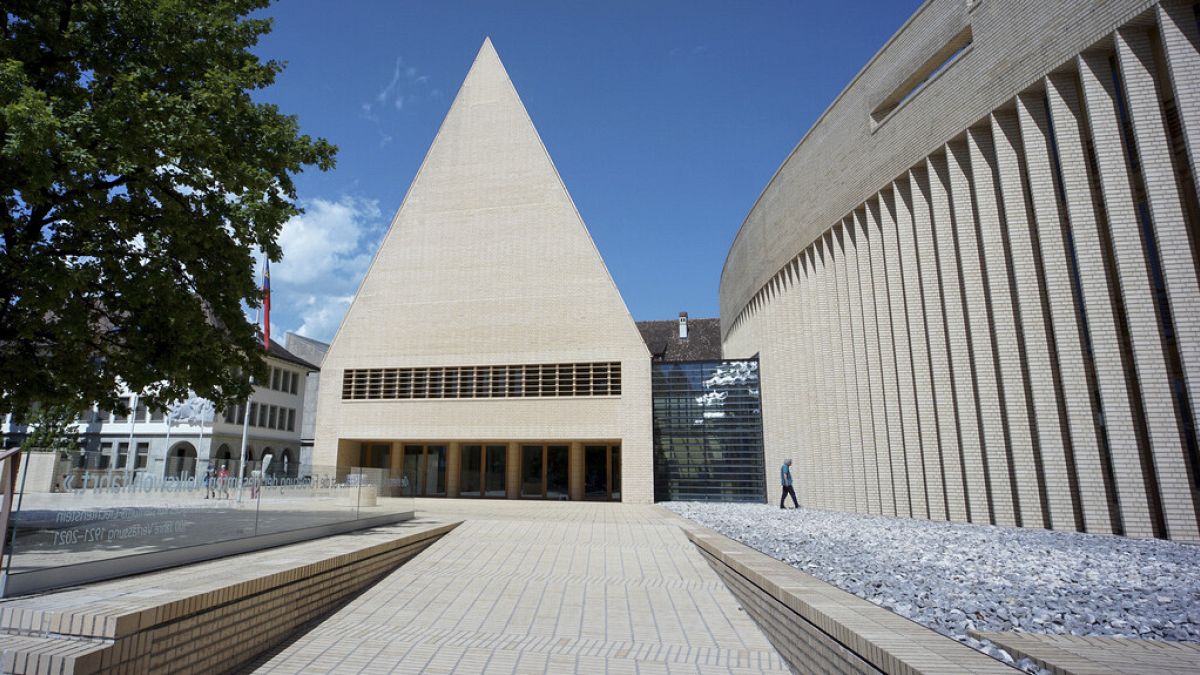Europe
Alpine microstate of Liechtenstein set for first female PM after vote

A Historic Victory: Brigitte Haas Set to Become Liechtenstein’s First Female Prime Minister
Brigitte Haas, a prominent figure in Liechtenstein’s political landscape, is poised to make history as the first female prime minister of the wealthy Alpine principality. Her conservative party, the Fatherland Union, emerged victorious in the general election held on Sunday, marking a significant milestone in the country’s political history. This win not only secures her place as the leader of the government but also breaks a long-standing tradition of male dominance in the highest office. Haas, a lawyer and the managing director of the country’s Chamber of Commerce and Industry, is set to succeed Daniel Risch, the outgoing prime minister from her own party, on March 20.
The Fatherland Union secured 38.3% of the vote, a slight improvement from the 35.9% it garnered in the last election four years ago. This result translates to 10 seats in Liechtenstein’s 25-member parliament, unchanged from the previous election. The party has traditionally formed coalitions with the Progressive Citizens’ Party (FBP), which experienced a decline in support, dropping to 27.5% of the vote compared to 35.9% in 2021. The FBP lost three of its 10 seats, reflecting a shift in voter preferences. Overall, voter turnout was strong at 76.3%, with 16,171 ballots cast in the election.
Liechtenstein’s Political Landscape and the Road to Gender Equality
Liechtenstein, a tiny German-speaking microstate nestled between Austria and Switzerland, has a long history of male-dominated politics. Since the office of prime minister was established in 1921, the country has never had a female leader. This historic win by Brigitte Haas marks a turning point in Liechtenstein’s journey toward gender equality. Her ascent to the highest office is all the more remarkable given the country’s slow progress in granting women the right to vote. Liechtenstein was the last country in Europe to extend universal suffrage to women, with women earning the right to vote as recently as 1984.
Haas’s victory is not only a personal achievement but also a testament to the growing role of women in Liechtenstein’s political and social fabric. Her party’s platform and her own background suggest that she may prioritize economic stability, given her experience in the Chamber of Commerce and Industry. However, her leadership is also expected to bring a fresh perspective to issues such as gender equality and social progress.
The Unique Political Structure of Liechtenstein
Liechtenstein is a constitutional hereditary monarchy, meaning that the head of state, Prince Hans-Adam II, plays a significant role in governance. The ruling prince has the power to veto legislation, appoint judges, and even dismiss the government. This unique political structure sets Liechtenstein apart from other parliamentary democracies. While the government is responsible for day-to-day administration, the monarchy retains considerable influence over key decisions.
Despite these powers, Liechtenstein has a robust parliamentary system that ensures a degree of checks and balances. The 25-member parliament, known as the Landtag, is elected by the people and is responsible for passing laws and overseeing the government. The Fatherland Union’s victory ensures that Haas will lead a coalition government, likely with the FBP, which has traditionally been its partner. The election results reflect a continuation of political stability in Liechtenstein, which has been characterized by the dominance of the two main parties.
Economic Prosperity and Challenges Ahead
Liechtenstein is one of the wealthiest countries in the world, with the second-highest income per capita in Europe, trailing only Monaco. According to the International Monetary Fund (IMF), the average income stands at an impressive €191,000. This prosperity is driven by the country’s thriving manufacturing sector and its strong financial services industry. Liechtenstein’s strategic location and business-friendly environment have made it a hub for international companies and financial institutions.
However, this wealth also brings challenges. Liechtenstein faces pressures to maintain its competitive edge in a rapidly changing global economy. Additionally, the country must navigate the complexities of its relationship with neighboring European countries, particularly as it is not a member of the European Union. As prime minister, Haas will need to balance economic growth with social welfare and ensure that the benefits of prosperity are shared equitably among all citizens.
A New Era for Liechtenstein: Progress and Possibilities
Brigitte Haas’s election as prime minister represents a new era for Liechtenstein, one marked by potential for progress and renewal. Her leadership offers an opportunity to address long-standing issues such as gender equality and to modernize the country’s political and social institutions. While Liechtenstein has come a long way since granting women the right to vote in 1984, there is still work to be done to achieve full equality.
Haas’s background as a lawyer and her experience in the Chamber of Commerce and Industry suggest that she is well-equipped to tackle the economic and social challenges facing the country. Her leadership style and policy priorities will be closely watched, both domestically and internationally, as she takes on the responsibilities of office. In assuming the role of prime minister, Haas not only breaks a glass ceiling but also sets a precedent for future generations of women in Liechtenstein.
Conclusion: A Step Forward for Liechtenstein
The election of Brigitte Haas as Liechtenstein’s first female prime minister is a landmark moment in the country’s history. It signifies progress toward gender equality and reflects the evolving values of Liechtenstein’s society. While the country still grapples with the vestiges of its patriarchal past, Haas’s victory is a powerful reminder that change is possible.
As she prepares to take office, Haas faces the dual challenge of maintaining Liechtenstein’s economic success while driving social progress. Her leadership will be instrumental in shaping the country’s future and ensuring that it remains a beacon of prosperity and stability in Europe. The world will be watching as Liechtenstein embarks on this new chapter, led by a trailblazing leader determined to make her mark.